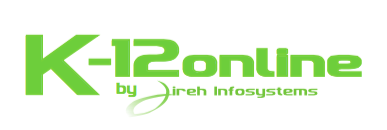Judging by your track record
Year after year, schools enroll new students. For public schools, the process is a little less rigorous, but for most private schools, each student has to go through some sort of application process that determines their ability to succeed in that environment. An essay, teacher recommendations…something to help determine if they are “acceptable”. Whether public or private, all students start the school year off with a track record – all the facts that make up the student’s academic story.
But do educators equally judge the students they serve? More often than not, those with acceptable track records are not judged on their past, but on their potential. Interestingly enough, those with tarnished records are not judged on their potential but on their past. Is that fair to the student? Don’t all students have the potential to succeed? Does a student’s track record measure who they will turn out to be or do they grow to measure up to their track record?
In any case, a student’s file might suggest potential, but it doesn’t determine success. Educators play a huge role in helping to shape the success of a child. We’ve heard multiple stories from successful adults about the “teacher that changed their life” – the educator that saw their potential and helped them realize it, too.
Although difficult, teachers must see the potential in every child they serve. They must see that there is room for growth in each child in order to believe that there is greater potential. And more than that, they must make the child believe it! A fixed mindset cannot function in a world of potential because the fixed mindset doesn’t value the search for better.
Potential includes the achievements just beyond what a student has already done. However, to truly work towards attaining that next best level of growth, one needs to value getting to the next level more than they value the one they have already attained. This does not always come natural for a child. Helping a child discover his or her potential is an exercise in finding and pushing their limits.
Success can only be achieved through effort, willpower, resilience, perseverance, and grit. Yes, grades and test scores are important, but without the aforementioned, one cannot consistently find success nor discover their true potential.
Many will argue that it’s the parents’ job and that the seed of success is planted at home. The reality is that not every student has the most ideal, supportive family life. Statistics show troubling numbers of children nationwide who don’t receive even the basic needs of survival, such as food and shelter, from their “home life”. When a child’s reality is a life you wouldn’t wish on your worst enemy or they are living through a situation you can’t begin to fathom because it seems so out of the realm of civility, how do you expect them to thrive and believe in themselves at school? The process to begin tackling these issues is so multifaceted, and of course there is not one concrete solution, so as an educator what do you do? Do you just throw your hands up and say oh well if they are not getting the support they need at home, there is nothing I can do about it at school?
Tomorrow you will get another chance to help your students discover their own potential. Will you be the inspiration they need?
Let us know. What do you do to inspire your students to reach their potential?
